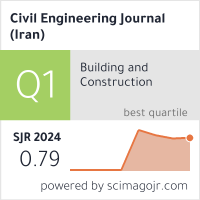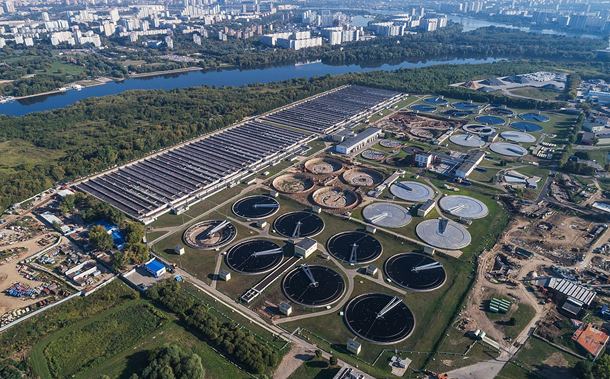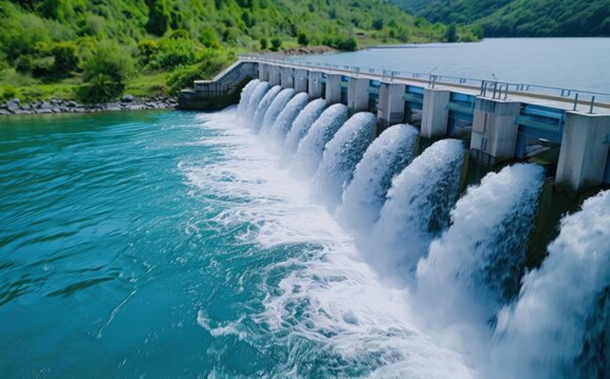Influence of Emulsion Type and Moisture on the Stiffness of Stabilized Granular Soil
Downloads
The objective of this study is to investigate how moisture content affects the stiffness of a gravelly-sandy soil stabilized with asphalt emulsion, considering different types of emulsion (medium- and slow-setting) and modified compaction energy. Dynamic triaxial tests were carried out to determine the stiffness of specimens at different moisture contents, considering the dry and wet branches of the compaction curve, all stabilized with 2% asphalt emulsion. The influence of moisture content and emulsion type was assessed using robust analysis of variance (ANOVA), allowing the evaluation of statistical significance and the interaction between factors. The results showed that the stiffness of the stabilized soil is strongly influenced by moisture content, with a peak value observed near the optimum moisture (~8.2%). The slow-setting (SS) emulsion achieved the best performance, reaching 938.94 MPa, representing a 452.32% increase compared to the untreated soil. The medium-setting (MS) emulsion also produced a significant stiffness gain (375.29%). Statistical analysis indicated that emulsion type was the most influential factor (Q = 1747; p = 0.001). This study contributes to the literature by experimentally and statistically demonstrating how moisture content and emulsion type affect the stiffness of stabilized soils.
Downloads
[1] Zerfu, K., & Ekaputri, J. J. (2022). The effect of reinforcement ratio on the flexural performance of alkali-activated fly ash-based geopolymer concrete beam. Heliyon, 8(12). doi:10.1016/j.heliyon.2022.e12015.
[2] Onn, C. C., Mo, K. H., Radwan, M. K. H., Liew, W. H., Ng, C. G., & Yusoff, S. (2019). Strength, carbon footprint and cost considerations of mortar blends with high volume ground granulated blast furnace slag. Sustainability (Switzerland), 11(24), 7194. doi:10.3390/SU11247194.
[3] Chang, I., Lee, M., Tran, A. T. P., Lee, S., Kwon, Y. M., Im, J., & Cho, G. C. (2020). Review on biopolymer-based soil treatment (BPST) technology in geotechnical engineering practices. Transportation Geotechnics, 24, 100385. doi:10.1016/j.trgeo.2020.100385.
[4] Jalal, F. E., Xu, Y., Jamhiri, B., Memon, S. A., & Graziani, A. (2020). On the Recent Trends in Expansive Soil Stabilization Using Calcium-Based Stabilizer Materials (CSMs): A Comprehensive Review. Advances in Materials Science and Engineering, 2020, 1510969. doi:10.1155/2020/1510969.
[5] Silva, T. A., Vieira, C. M. F., & Gomes, L. G. C. (2018). Study of the environmental stability of soils stabilized with asphalt emulsion. Revista Matéria, 23(2), 1-12.
[6] Anastasiou, E. K., Liapis, A., & Papayianni, I. (2015). Comparative life cycle assessment of concrete road pavements using industrial by-products as alternative materials. Resources, Conservation and Recycling, 101, 1–8. doi:10.1016/j.resconrec.2015.05.009.
[7] Rahmat, M. N., Ibrahim, S., & Ismail, N. (2019). Ceramic Dust Based Binder for Sustainable Stabilisation of Low Flood-Plain Soil. IOP Conference Series: Earth and Environmental Science, 385(1), 12069. doi:10.1088/1755-1315/385/1/012069.
[8] Liu, M., Saberian, M., Li, J., Zhu, J., Roychand, R., & Li, C. Q. (2025). Sustainable stabilisation of expansive clay subgrades using ethylene-vinyl acetate copolymer emulsion: A comprehensive laboratory evaluation. Case Studies in Construction Materials, 22, 4256. doi:10.1016/j.cscm.2025.e04256.
[9] AS 1289.6.1.1. (2014). Methods of testing soils for engineering purposes Soil strength and consolidation tests - Determination of the California Bearing Ratio of a soil - Standard laboratory method for a remoulded specimen. Standards Australia, Sydney, Australia.
[10] AS 1289.5.1.1. (2017). Methods of testing soils for engineering purposes Soil compaction and density tests - Determination of the dry density/moisture content relation of a soil using standard compactive effort. Standards Australia, Sydney, Australia.
[11] de Medeiros, A. S., Cardoso, M. H. S., & da Silva, M. A. V. (2024). Evaluation of the Mechanical Behavior of Soil Stabilized with Asphalt Emulsion Using Multi-Stage Loading. Civil Engineering Journal (Iran), 10(1), 20–40. doi:10.28991/CEJ-2024-010-01-02.
[12] Chilufya, A., Gangell, D., Shahin, M. A., & Abdullah, H. H. (2024). Performance Study on Laterite Road Base Stabilised with Emulsions Incorporating Biochar. Buildings, 14(3), 575. doi:10.3390/buildings14030575.
[13] Medeiros, A. S. de, Santana, C. S. A., & Vieira da Silva, M. A. (2024). Evaluation of the mechanical behavior of soil stabilized with asphalt using asphalt emulsion. Matéria (Rio de Janeiro), 29(4). doi:10.1590/1517-7076-rmat-2024-0533. (In Portuguese).
[14] Coelho, L. M., Kox, R. P., Guimarães, A. C. R., Travincas, R., & Monteiro, S. N. (2024). Influence of Curing Time on the Mechanical Behavior of Cold Recycled Bituminous Mix in Flexible Pavement Base Layer. Applied Sciences (Switzerland), 14(17), 7612. doi:10.3390/app14177612.
[15] Andrews, J. K., Radhakrishnan, V., Koshy, R. Z., & Prasad, C. S. R. K. (2024). Performance prediction of emulsion treated base layer mixes using indirect tensile strength and resilient modulus test parameters. Innovative Infrastructure Solutions, 9(11), 429. doi:10.1007/s41062-024-01754-5.
[16] Husain, S. F., Qamhia, I. I. A., Vyas, A., Maia, R. S., Tutumluer, E., & Hajj, R. (2023). Emulsion Mixtures of Fractionated Reclaimed Asphalt Pavement and Quarry By-Products: A Laboratory Evaluation. Sustainability (Switzerland), 15(13), 10735. doi:10.3390/su151310735.
[17] Illinois Department of Transportation (SPR). (2021). Flexible Pavement Design (Full-depth Asphalt and Rubblization): A Summary of Activities. Illinois Department of Transportation (SPR), Springfield, United States.
[18] Orosa, P., Pérez, I., & Pasandín, A. R. (2023). Evaluation of water loss and stiffness increase in cold recycled mixes during curing. Case Studies in Construction Materials, 18, 1877. doi:10.1016/j.cscm.2023.e01877.
[19] EN 12697-31:2019. (2019). EN 12697-31 Bituminous mixtures - Test methods - Part 31: Specimen preparation by gyratory compactor. European Committee for Standardization (CEN), Brussels, Belgium.
[20] Dias, C. R. C., Núñez, W. P., Brito, L. A. T., Johnston, M. G., Ceratti, J. A. P., Wagner, L. L., & Fedrigo, W. (2023). Bitumen stabilized materials as pavement overlay: Laboratory and field study. Construction and Building Materials, 369, 130562. doi:10.1016/j.conbuildmat.2023.130562.
[21] Orosa, P., Pérez, I., & Pasandín, A. R. (2022). Evaluation of the shear and permanent deformation properties of cold in-place recycled mixtures with bitumen emulsion using triaxial tests. Construction and Building Materials, 328, 127054. doi:10.1016/j.conbuildmat.2022.127054.
[22] Al-Mansob, R. A., Ismail, A., Rahmat, R. A. O., Borhan, M. N., Alsharef, J. M., Albrka, S. I., & Karim, M. R. (2017). The performance of epoxidised natural rubber modified asphalt using nano-alumina as additive. Construction and Building Materials, 155, 680-687. doi:10.1016/j.conbuildmat.2017.08.106.
[23] Yaowarat, T., Sudsaynate, W., Horpibulsuk, S., Chinkulkijniwat, A., Arulrajah, A., & Horpibulsuk, J. (2021). Mechanical Properties of Fly Ash–Asphalt Emulsion Geopolymer Stabilized Crushed Rock for Sustainable Pavement Base. Journal of Materials in Civil Engineering, 33(9), 4021220. doi:10.1061/(asce)mt.1943-5533.0003751.
[24] ASTM D1557-12. (2015). Standard Test Methods for Laboratory Compaction Characteristics of Soil Using Modified Effort (56,000 ft-lbf/ft3 (2,700 kN-m/m3)). ASTM International, Pennsylvania, United States. doi:10.1520/D1557-12.
[25] Kamran, F., Basavarajappa, M., Bala, N., & Hashemian, L. (2021). Laboratory evaluation of stabilized base course using asphalt emulsion and asphaltenes derived from Alberta oil sands. Construction and Building Materials, 283, 122735. doi:10.1016/j.conbuildmat.2021.122735.
[26] Beesam, V. V., & Torres-Machi, C. (2021). Input parameters for the mechanistic-empirical design of full-depth reclamation projects. Transportation Research Record, 2675(11), 384-396. doi:10.1177/03611981211017916.
[27] ASTM D2487-17. (2020). Standard Practice for Classification of Soils for Engineering Purposes (Unified Soil Classification System). ASTM International, Pennsylvania, United States. doi:10.1520/D2487-17.
[28] AASHTO M145-1973. (1973). Standard Classification of Soils and Soil-Aggregate Mixtures for Highway Construction Purpose. American Association of State Highway and Transportation Officials (AASHTO), Washington, United States.
[29] ASTM D422-63(2007). (2014). Standard Test Method for Particle-Size Analysis of Soils. ASTM International, Pennsylvania, United States. doi:10.1520/D0422-63R07.
[30] ASTM D244-23. (2023). Standard Test Methods and Practices for Emulsified Asphalts. ASTM International, Pennsylvania, United States. doi:10.1520/D0244-23.
[31] DNIT 134/2018-ME. (2023). Paving - Soils - Determination of the resilience modulus - Test method (corrected version with the incorporation of erratum 1). Publicação da Errata 1 em 20/04/2023, National Department of Transport Infrastructure, Brasília, Brazil. (In Portuguese).
[32] AASHTO T307-99. (2007). Standard Method of Test for Determining the Resilient Modulus of Soils and Aggregate Materials. American Association of State Highway and Transportation Officials (AASHTO), Washington, United States.
[33] Newbury, D. E., & Ritchie, N. W. (2013). Elemental mapping of microstructures by scanning electron microscopy-energy dispersive X-ray spectrometry (SEM-EDS): extraordinary advances with the silicon drift detector (SDD). Journal of Analytical Atomic Spectrometry, 28(7), 973-988. doi:10.1039/C3JA50026H.
[34] Newbury, D. E., & Ritchie, N. W. (2013). Is scanning electron microscopy/energy dispersive X-ray spectrometry (SEM/EDS) quantitative?. Scanning, 35(3), 141-168. doi:10.1002/sca.21041.
[35] Girão, A. V., Caputo, G., & Ferro, M. C. (2017). Application of scanning electron microscopy–energy dispersive X-ray spectroscopy (SEM-EDS). Comprehensive analytical chemistry, 75, 153-168. doi:10.1016/bs.coac.2016.10.002.
[36] Teixeira, P. C., Donagemma, G. K., Fontana, A., & Teixeira, W. G. (2017). Handbook of soil analysis methods (3rd Ed.). Embrapa Solos, Brasília, Brazil. (In Portuguese).
[37] Schmider, E., Ziegler, M., Danay, E., Beyer, L., & Bühner, M. (2010). Is It Really Robust?: Reinvestigating the robustness of ANOVA against violations of the normal distribution assumption. Methodology, 6(4), 147–151. doi:10.1027/1614-2241/a000016.
[38] ABNT NBR 14491. (2013). Asphalt emulsion – Determination of Saybolt - Furol viscosity. Brazilian Association of Technical Standards (ABNT), Rio de Janeiro, Brazil. (In Portuguese).
[39] ABNT NBR 14376. (2012). Asphalt emulsion – Determination of residue by evaporation. Brazilian Association of Technical Standards (ABNT), Rio de Janeiro, Brazil. (In Portuguese).
[40] ABNT NBR 14393. (2010). Asphalt emulsion – Determination of passage through a 0.84 mm sieve. Brazilian Association of Technical Standards (ABNT), Rio de Janeiro, Brazil. (In Portuguese).
[41] ABNT NBR 6570. (2008). Asphalt emulsion – Determination of sedimentation. Brazilian Association of Technical Standards (ABNT), Rio de Janeiro, Brazil. (In Portuguese).
[42] ABNT NBR 6567. (2002). Asphalt emulsion – Determination of particle charge. Brazilian Association of Technical Standards (ABNT), Rio de Janeiro, Brazil. (In Portuguese).
[43] ABNT NBR 6297. (2013). Asphalt emulsion – Determining compatibility with Portland cement. Brazilian Association of Technical Standards (ABNT), Rio de Janeiro, Brazil. (In Portuguese).
[44] ABNT NBR 6569. (2000). Asphalt emulsion – Determination of destabilization by demulsifier. Brazilian Association of Technical Standards (ABNT), Rio de Janeiro, Brazil. (In Portuguese).
[45] Coelho, L. M., Guimarães, A. C. R., Azevedo, A. R. G. de, & Monteiro, S. N. (2024). Sustainable Reclaimed Asphalt Emulsified Granular Mixture for Pavement Base Stabilization: Prediction of Mechanical Behavior Based on Repeated Load Triaxial Tests. Sustainability (Switzerland), 16(13). doi:10.3390/su16135335.
- Authors retain all copyrights. It is noticeable that authors will not be forced to sign any copyright transfer agreements.
- This work (including HTML and PDF Files) is licensed under a Creative Commons Attribution 4.0 International License.![]()















